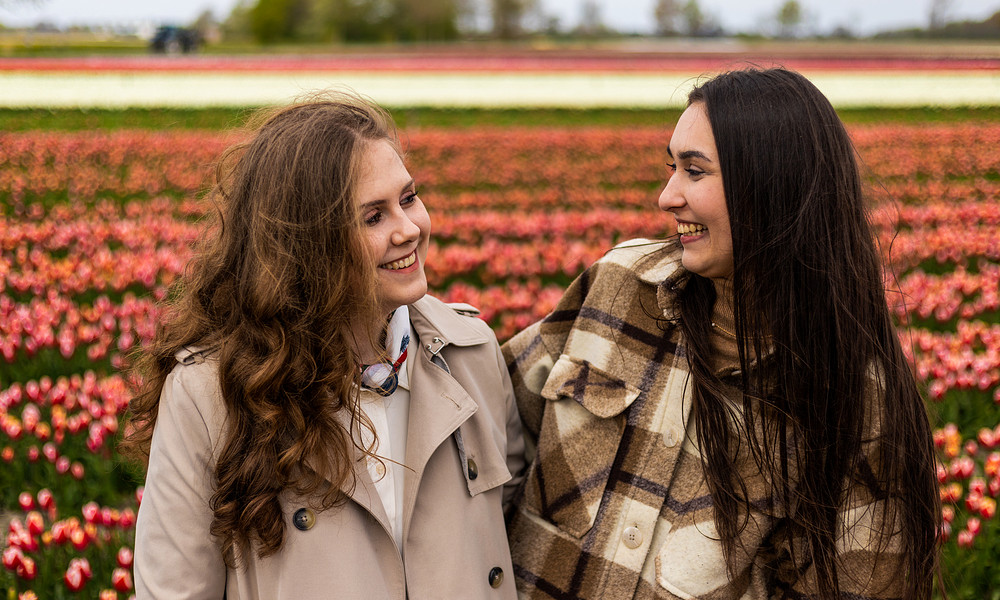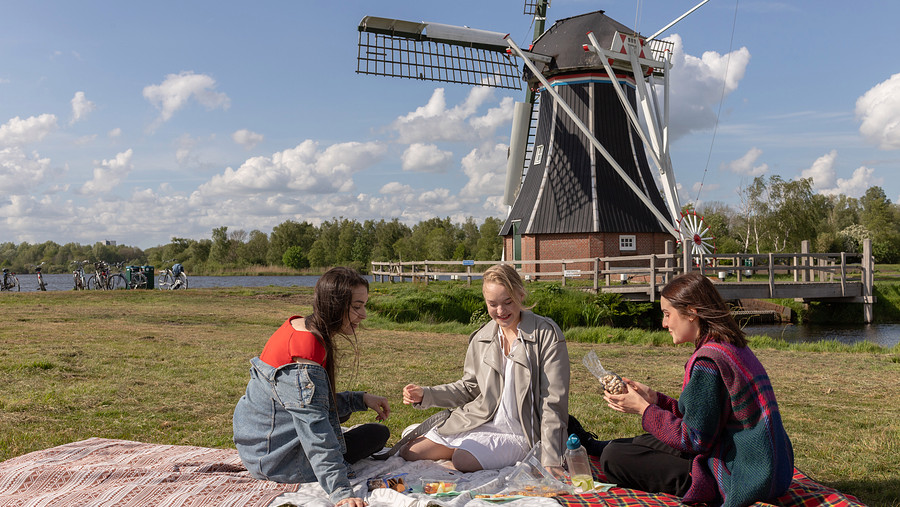
The Kingdom of the Netherlands consists of the Netherlands itself and six islands in the Caribbean Sea. The country's formal name in Dutch is Nederland, meaning ´low country'. This refers to the fact that much of the land is at or below sea level. The Netherlands is sometimes also called 'Holland'. However, strictly speaking, North and South Holland are only a part of the Netherlands; there are twelve provinces in total, of which Groningen (with its namesake capital city) is one.
About the Netherlands
Well-positioned and multicultural
With over 17 million inhabitants on 41,000 square kilometres, the Netherlands is one of the most densely populated countries in the world. It is one of the founding fathers of the European Union and with its central location it is in easy reach of all major European cities. Although small in size, the Netherlands has a rich cultural tradition. For centuries the country has had an attitude of openness towards the rest of the world. In business, but also in social life. Dutch society is multicultural, with groups of people from different backgrounds living in the Netherlands for decades as a result of historical ties with other parts of the world. Consequently, there is also substantial religious diversity.
Protected by dikes
Part of the country is below sea level, protected by dikes. Dikes were already built by monks in the early middle ages. However, water has not only given the Dutch trouble, it has also brought them wealth through commerce. Part of this prosperity is founded on transit trade, but the Netherlands sells its own produce and manufactures on world markets, e.g. it exports more dairy products than any other country in the world. Another spin-off of its watery location is that the Netherlands is a frontrunner in hydraulic engineering. Globally, the Netherlands is considered the sixth most competitive global economy (IMD 2022).
Constitutional monarchy
The country is a constitutional monarchy. It is politically stable, maintains a parliamentary system, and is run by coalition governements, i.e. an environment conducive to inclusive policies.
Rich heritage
From the middle ages onwards, the country has been part of the cultural mainstream of Western Europe. This has left an enormous heritage, not only in painting (Rembrandt, Van Gogh), but also in old architecture. The flowering of the arts has always gone hand in hand with a vivid interest in the sciences. Today, Dutch society is well-educated, open, egalitarian, tolerant and not afraid of unorthodox solutions.
Dutch first, English second
The official language is Dutch, however, most Dutch have a very good command of English. Approx. 95% of the Dutch population speaks English. Therefore, English may be seen as the second language in the Netherlands. The Netherlands is even ranked first worldwide in terms of speaking English as a second language (EF Proficiency Index, 2021)!

Why should you study in the Netherlands - explained in 100 seconds!
So why should you study in the Netherlands?
- The Dutch educational system is of high quality and our universities are acknowledged worldwide for their well-designed, modern courses and facilities. The Dutch educational system can be classified as a problem-based learning system.
- The tuition fees and other expenses are relatively low for those who come to the Netherlands to study compared to other European countries. Dutch universities have good relations with foreign partner institutes and encourage their students to engage in exchange programmes and study tours.
- Respect for each individual's opinions and convictions is a national virtue that gives strength to the fabric of Holland's diverse society. This is the foundation of the teaching methods used in Dutch educational institutions.
- The interactive and student-centred teaching style, provides students with the attention and freedom they need to develop their own opinions and creativity in applying their newly acquired knowledge. Holland has received international acclaim for its groundbreaking problem-based learning system, which trains students to analyse and solve practical problems independently through emphasis on self-study and self-discipline.
FAQs about the Netherlands
Feedback component
How satisfied are you with the information on this page?